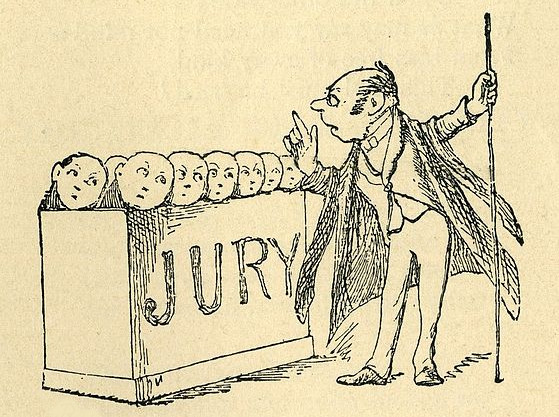
Our legal system assumes that a defendant is innocent until proven guilty beyond a reasonable doubt. But what constitutes a reasonable doubt? Law professors Ariel Porat and Alon Harel suggest that an “aggregate probabilities principle” might help to determine whether an accused party is innocent or guilty.
Suppose we’ve decided that the evidence must indicate a probability of 95 percent guilt before we’re willing to declare a defendant guilty. Mr. Smith is accused of two separate crimes, with a 90 percent probability of guilt in each case. Under the 95 percent rule he’d be acquitted of both crimes. But Porat and Harel point out that there’s a 10 percent chance that Smith is innocent of each crime, and aggregating the probabilities gives a 0.10 × 0.10 = 0.01 chance that Smith is innocent of both — that is, there’s a 99 percent chance that he’s guilty of at least one of the offenses.
On the other hand, consider Miller, who is also accused of two different crimes. Suppose that the evidence gives a 95 percent probability that he committed each crime. Normally he’d be convicted of both offenses, but aggregating the probabilities gives a 0.95 × 0.95 = 0.9025 chance that he’s guilty of both offenses, and hence he’d be acquitted of one.
In A Mathematical Medley (2010), mathematician George Szpiro points out that this practice can produce some paradoxical outcomes. Peter and Paul are each accused of a crime, each with a 90 percent chance of being guilty. Normally both would be acquitted. But suppose that each was accused of a similar crime in the past, Peter with a 90 percent chance of guilt and Paul with a 95 percent chance. Accordingly Peter was acquitted and Paul went to prison. But historically Peter has now been accused of two crimes, with a 90 percent chance of guilt in each case; according to the reasoning above he ought to be convicted of one of the two crimes and hence ought to go to jail today. Paul has also been accused of two crimes, with a 0.95 × 0.90 = 0.855 chance that he’s guilty of both. He’s already served one prison term, so the judge ought to acquit him today.
Szpiro writes, “Thus we have the following scenario: in spite of the evidence being identical, the previously convicted Peter is acquitted, while Paul, with a clean record, is incarcerated.”
(Ariel Porat and Alon Harel, “Aggregating Probabilities Across Offences in Criminal Law,” Public Law Working Paper #204, University of Chicago, 2008; George Szpiro, A Mathematical Medley, 2010.)










